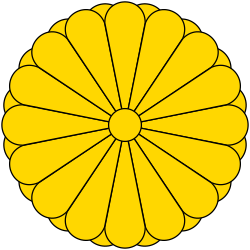Endorsement by at least twenty LDP lawmakers is necessary to become a candidate in the election. [1] Since there are 387 LDP Diet members and 141 prefectural LDP representatives (three for each of the 47 prefectural chapters), there is a total of 528 votes. [6] The following people were candidates in the election:
Declared
People who were considered likely candidates, but refused to seek the nomination, were:
- Former Prime Minister Junichiro Koizumi, Abe's immediate predecessor, was also considered a possible candidate, but declined to seek the nomination. [1] He expressed his support for Fukuda on 14 September 2007. [7]
- The incumbent Minister of Finance Fukushiro Nukaga initially stated on 13 September 2007 he would run, [1] [8] [9] [10] but decided to support Fukuda on 14 September 2007 after he had a 40-minute meeting with him. [11]
- Sadakazu Tanigaki, a former Minister of Finance under Junichiro Koizumi, [8] and Taku Yamasaki, a former LDP Secretary General and the third candidate in the 2006 leadership election, [3] both announced their support for Fukuda on 14 September 2007, as did former LDP Secretary General Makoto Koga. [12]
- Kaoru Yosano, the incumbent Chief Cabinet Secretary, was also considered a likely candidate, [13] [8] but did not stand.
Aso conceded on 16 September 2007 that he was unlikely to win the race and stated he was primarily continuing as a candidate to give party members a choice. [14] Fukuda had by that date gathered the official support of eight factions of the LDP, all except Aso's own faction; he furthermore stated he would not visit the controversial Yasukuni Shrine, [15] and proposed the construction of a secular national memorial facility instead. Aso stated that there could be no replacement for the shrine, but did not state whether he would visit the shrine if elected. [16] Fukuda struck a more conciliatory tone in relation to the North Korean abduction issue, while Aso positioned himself as a hardliner. [17]
According to media surveys, Fukuda had 213 of the lawmakers on his side, while Aso had the assured support of 45 Diet members. [18] Observers agreed that Fukuda was almost certain to win due to the widespread support across faction borders he had obtained. [19]
Fukuda received 330 votes in the election, held on 23 September, defeating Asō, who received 197 votes. [4] [5] The support from Diet members alone was enough for Fukuda to win the leadership in the first round. [20]




